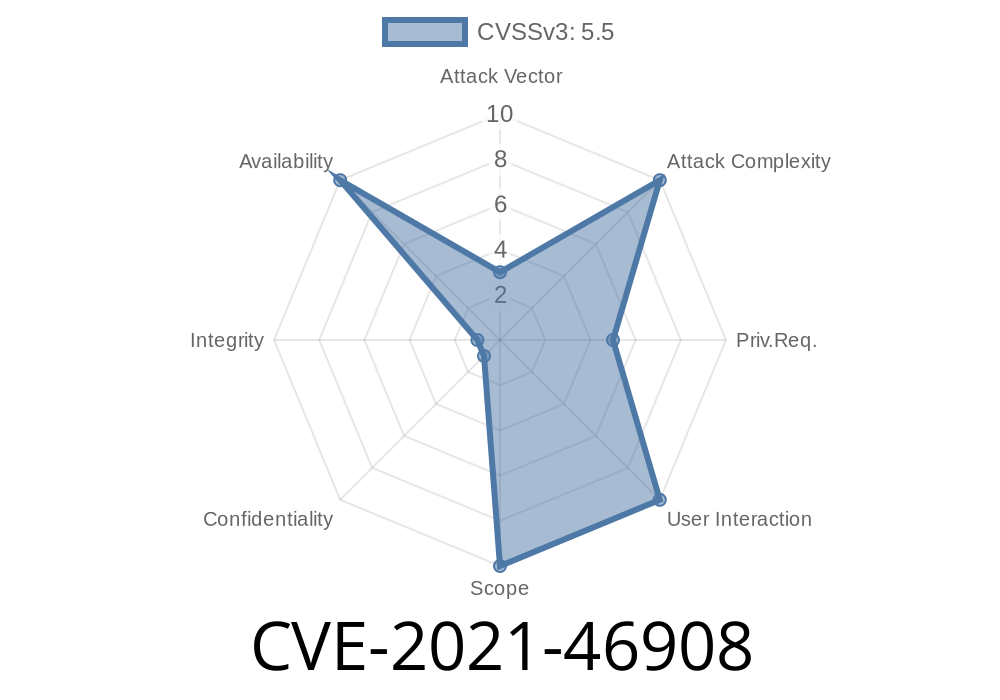In early 2021, a security vulnerability was quietly patched in the Linux kernel’s Berkeley Packet Filter (BPF) subsystem. Tagged as CVE-2021-46908, this flaw exposes a subtle, yet critical, risk tied to how the BPF verifier handled certain arithmetic operations between signed and unsigned values. The vulnerability stems from mixing signed and unsigned bounds in arithmetic operations—a condition that could lead to a bypass of Spectre v1 masking mitigations in BPF programs.
Let’s break down what this means, how it was fixed, and what exploiting it might involve.
What Is BPF and Why Does It Matter?
BPF (Berkeley Packet Filter) is a core technology in the Linux kernel, used originally for network packet filtering but now powering tools for tracing, monitoring, and even sandboxing. Importantly, BPF programs are run in the kernel, so *any vulnerability here is a big deal*—flaws could give attackers privileged access or information leaks.
The Context
BPF programs often perform arithmetic on data, but mixing signed and unsigned integers can have unpredictable results. The BPF verifier (the kernel component ensuring user-supplied BPF code is safe) uses flags to control what operations are allowed, especially to block paths that could leak kernel data (specifically, Spectre-style leaks).
allow_ptr_leaks: Controls if pointer values may be leaked.
The bug?
When mixed signed/unsigned arithmetic was detected with an unknown value, the verifier used the wrong permission flag. It relied on allow_ptr_leaks instead of the stricter bypass_spec_v1, accidentally letting unsafe code through and making possible a Spectre v1 attack.
The Patch
Here’s the critical code fix from the Linux Kernel Commit:
if (!bpf_verifier_rcu_is_readable() ||
!bypass_spec_v1 && tnum_arithmetic_may_oob(dst_reg, src_reg)) {
verbose(env,
"R%d has unknown scalar with mixed signed bounds, forbidden due to spectre v1 masking mitigation.\n",
dst);
return -EACCES;
}
Old code checked: !allow_ptr_leaks
New code checks: !bypass_spec_v1
This means the risky arithmetic is blocked unless a strict Spectre bypass flag is specifically set (which is never true for unprivileged code).
Exploitation Concept
The actual exploit would revolve around writing a BPF program that tricks the verifier into permitting mixed signed/unsigned arithmetic on unpredictable (user-controlled or kernel-derived) data. With Spectre v1 masking protections not fully enforced, an attacker can infer kernel memory content via side channels.
PoC Code Snippet
Here’s a researcher-style BPF program demonstrating the *pattern* that was at issue—*not a weaponized exploit*:
SEC("socket")
int test_prog(struct __sk_buff *skb)
{
int src = bpf_ntohs(skb->protocol); // Unpredictable value
int dst = 1024;
// Dangerous: mix signed (src) with unsigned (dst)
int result = src + dst;
if (result < ) {
// Suppose attacker controls this path
// Try to infer kernel memory...
}
return ;
}
Normally, the verifier should block this due to “mixed signed bounds.” But, with the bug, it could be allowed via the wrong flag, leading to an exploitable path. A real-world exploit would further massage cache timings or reuse recent Spectre attacks to harvest secrets.
Linux Patch Commit:
bpf: Use correct permission flag for mixed signed bounds arithmetic
CVE Record:
Spectre Variant 1 Overview:
Reading privileged memory with a side-channel
Should You Be Worried?
If you or your workloads use unprivileged BPF, you should upgrade your kernel if possible. Keeping BPF tightly sandboxed and limiting its access is always wise. With most distributions having long since merged this fix, the real danger is for custom or outdated kernels.
Summary
- CVE-2021-46908 allowed BPF programs to perform risky mixed signed/unsigned arithmetic due to the BPF verifier checking the *wrong security flag*.
- This bug could enable attackers to bypass Spectre v1 mitigations and potentially leak kernel secrets through carefully crafted BPF programs.
- The fix replaced the looseness of allow_ptr_leaks with the stricter, correct bypass_spec_v1 flag, improving kernel safety from speculative execution attacks in BPF.
Stay safe, keep your kernel up to date, and always respect BPF’s power!
*Exclusive writeup – please cite original sources for further detail.*
Timeline
Published on: 02/27/2024 07:15:06 UTC
Last modified on: 04/17/2024 17:15:29 UTC
